-
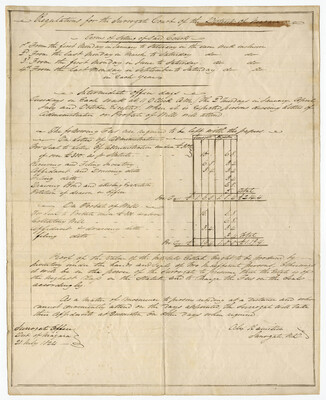
Regulations for the surrogate court of the District of Niagara. This is written text stating the terms of the settings of the court. It is signed by Alexander Hamilton who is the surrogate court judge. Intermediate office fees and fees are listed.
-
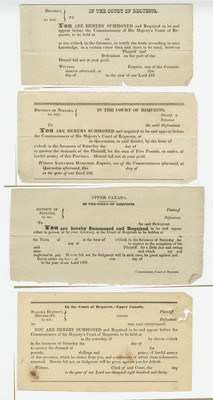
Four (different) Upper Canada in the Court of Requests summons. These forms are from the 1820s and 1830s. All are blank.
-
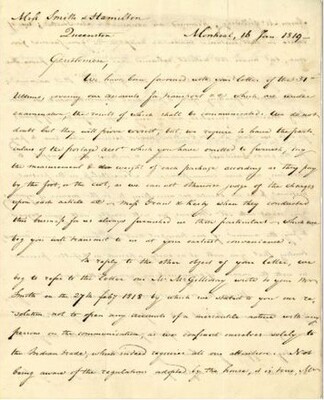
The letter asks that Smith and Hamilton provide them with the particulars of the postage acct., such as the weight and measurement of each package, so that they can judge the accuracy of the charges. A lengthy reply to a previous letter is also addressed, concerning accounts. It is stated that they do not open any accounts of a mercantile nature with any persons on the communication, as they confine themselves solely to the Indian trade. Not being aware of this, Mr. McGillivray promised an advance to Mr. Smith. This exception will be honoured, however, since they must pay for goods purchased immediately, and without commission, they state that in the future they will be unable to assist in this way again. He also states that their transport business for the coming season will not be greater than the last, January 16, 1819.
-
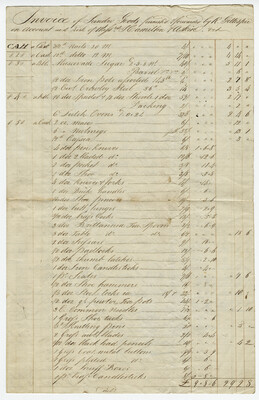
Invoice of Goods bought from Robert Gillespie for the amount of 238.7.8 pounds. The list is made up of sundry goods furnished and forwarded by R. Gillespie on the account and risk of Messrs. Hamilton and Askin. Items included, but not limited to: quilts, beaver gloves, Irish linens, mourning shawls, mustard, peppermints, glasses, tea pots, needles, knives and forks, buttons, spices, spades and numerous other assorted items. At the bottom of the list it is written: “errors excepted, Montreal 24th, September 1811” It is signed by Robert Gillespie. There is a watermark of a crest in the paper, 1811
-
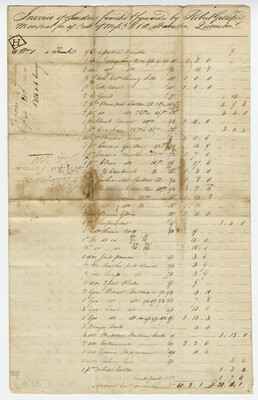
An invoice of sundries furnished and forwarded by Robert Gillespie of Montreal for Messrs. G. and A. Hamilton of Queenston. The final total is 486.4. 6 pounds. The invoice is for sundry items such as: thread, muslin, quilting, gingham, needles, saws, knives, bridles and chalk. The invoice is signed “errors excepted, Montreal 9th, July, 1810, R. Gillespie”, 1810
-
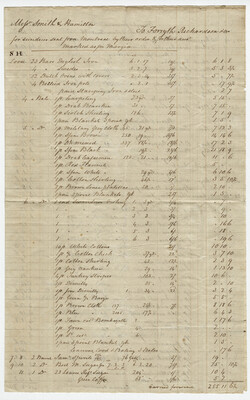
Invoice to Forsyth Richardson for the amount of 479.0.8 pounds. There are stains and slight tears in the folds which do not affect the text. The list is made up of sundries sent from Montreal by their order from Messrs. Smith and Hamilton. Items included, but not limited to: military grey cloth, white cottons, blankets, sugar, coffee, ivory combs, fishing lines, a black lamp, wafers, toothbrushes and numerous other assorted items. There is a watermark of a crest in the paper, 1818
-
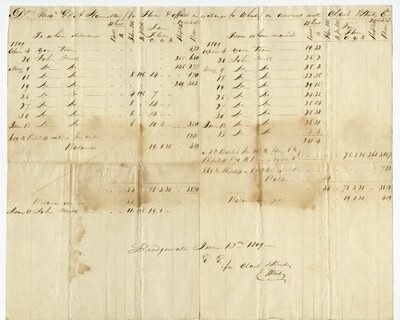
Bill of exchange to Messrs. G. and A. Hamilton for flour and offal [entrails and internal organs of an animal used as food] in exchange for wheat in account with Clark and Strud Bridegewater. April 4 – June 13, 1809.
-
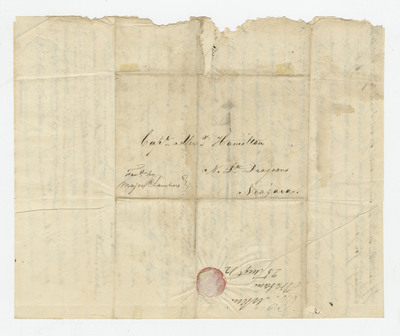
Letter to Captain Alex. Hamilton from Charles Askin, 25 August 1812. The letter describes the events at River Raisin and Fort Miami.
-
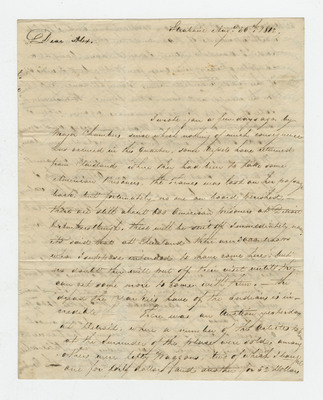
Letter to Capt. Alex. Hamilton of Queenston from Charles Askin, Strabane. The letter mostly concerns events following the surrender of Detroit in the War of 1812.
-
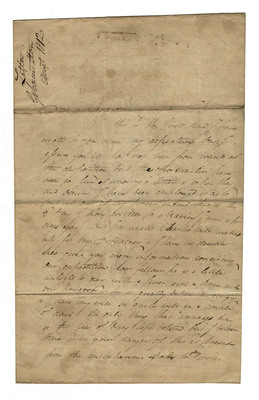
Letter (4 pages) to Alexander from George Hamilton. He writes that he has heard from some Indians that Governor Hull has about 1500 men and that they mentioned 4000 to you. He adds that little dependence can be placed on their intelligence but the former account agrees better with other information, with some being on this side at Sandwich and the remainder at Detroit. He writes that how or when they proceed he does not know, but thinks that going down the river in a large boat is the correct and most predictable plan. He is afraid that the coming reinforcements will be too small.









